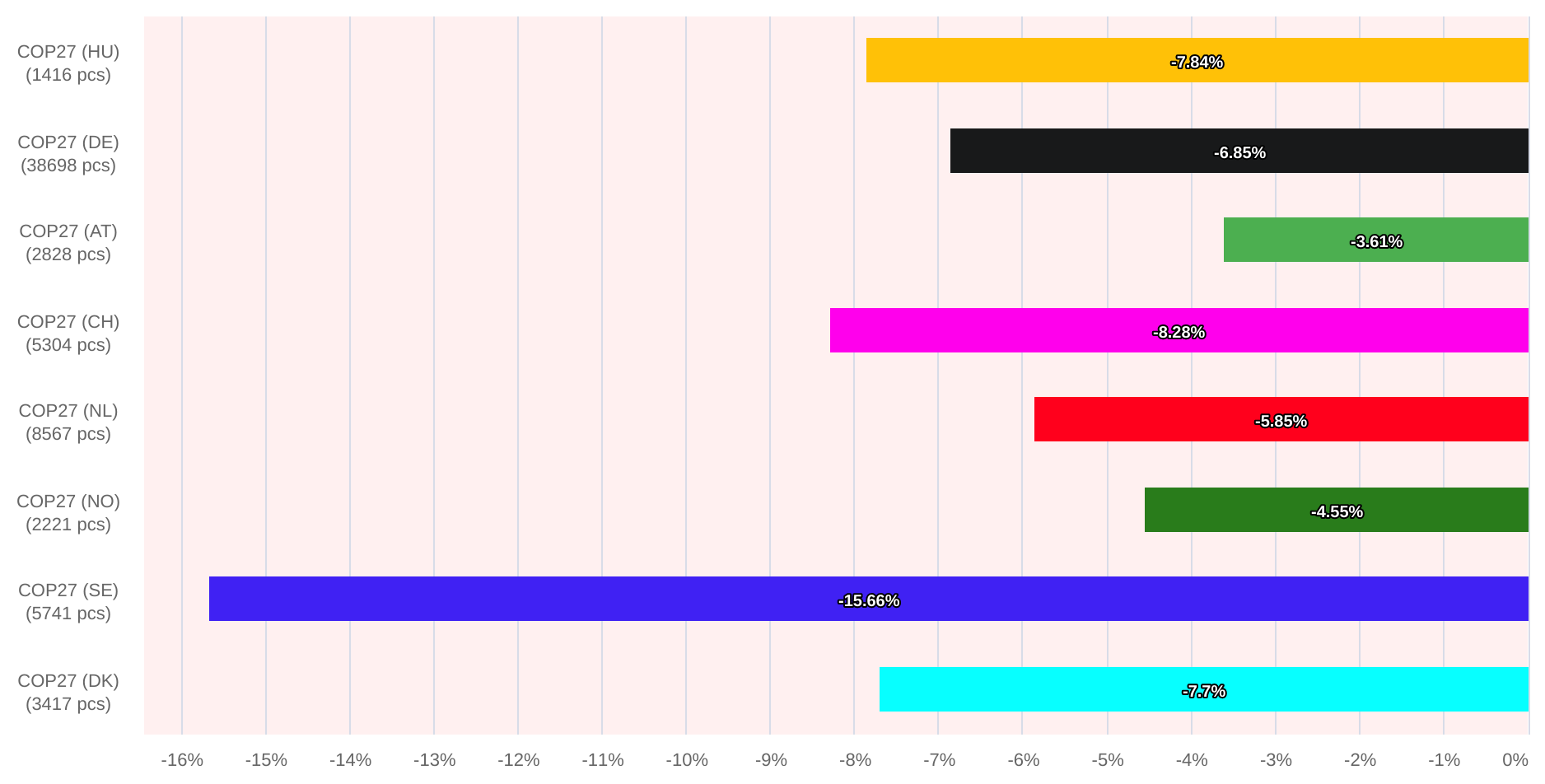Greenwashing or real change? COP27 opinions analyzed
Here’s what Europeans have said online about the UN’s largest climate conference, COP27. From skeptical to hopeful, we show you all.
The Conference of the Parties of the UNFCCC, more commonly referred to as COP27, was held for the 27th time from 6 November until 18 November - this time in Sharm el-Sheikh, Egypt. Despite the UN’s good intentions, several civil organizations have highlighted that since Berlin’s COP1 in 1995, the concentration of CO2 in the atmosphere and the yearly global CO2 emissions have only grown; the only things that could make a visible dent in emissions were the 2008 economic crisis and the pandemic in 2020.
In a similar mindset, Swedish climate activist Greta Thunberg announced in October that she would not be attending COP27, as in her view, the event was “mainly used as an opportunity for people in power to get attention, using many different kinds of greenwashing.”
With these in mind, we got curious to see what the general online perception of the event was like across Europe: did people get hopeful, were they angry, did they also expect more? We collected and analyzed all public online mentions of ‘COP27’ from the past four weeks (24 October - 18 November) in the DACH and Nordic region, and in Hungary.
The level of involvement varied greatly, the level of skepticism did not
German users talked the most about the conference with close to 40 thousand mentions, while Hungarians seemed the least interested, with less than 1500 mentions. The rest of the countries were somewhere in the middle, between 2 and 9 thousand mentions each. However, they all had one thing in common: the overall perception of the event was negative everywhere. The Net Sentiment Score below shows the percentage of negative online mentions subtracted from the percentage of positive ones: it was the Swedish and the Swiss who were the least satisfied with the event.

Skepticism concerning the effectiveness of the conference emerged everywhere, as the most engaging post by far was the following tweet in every examined country:
The world's elite have arrived at #COP27 on hundreds of private jets to lecture you about climate change. Sponsored by Coca-Cola. pic.twitter.com/fR4rqxL1nP
— DiEM25 (@DiEM_25) November 7, 2022
Essentially the same notion was expressed in some other tweets, retweeted many times in Switzerland and Hungary. Those critical of the conference also noted that positive change was actually happening, just not at the event… Danish photographer Jan Grarup expressed that children were suffering from famine while nothing could be expected from COP27.
Criticism aside, there was also a lot of engagement around posts that expressed the urgency of making real change. Austrians and those in Nordic countries retweeted Antonio Guterres’s post about being on a highway to climate hell with our foot on the accelerator. Germans engaged with tagesschau’s posts on Instagram about the climate crisis being the government’s top priority and Guterres saying “we either fight it together or commit collective suicide”. The Swiss liked the government’s Instagram post which explained what the country’s representation at the conference entailed, similarly to the Netherlands where Rob Jetten’s post explained what was to be expected.
There were also some examples of a more positive approach: Hungarians celebrated local news site Telex’s Facebook post on Brazil’s new president taking up the fight against deforestation, while Anja Bakken Riise, the leader of Norway’s largest environmental organization, gave tips on how to decrease climate anxiety while still actively doing our part.
Ignorance isn’t bliss anymore
Skeptical or not, news of the COP27 reached large crowds: at its beginning, when the most buzz was generated, over 67 million German users potentially came across content about the conference, but daily reach numbers were between 2 and 28 million for almost all examined countries during the event. Less and less people can stay ignorant about the climate crisis, and in countries where there already is strong interest towards solving it, events like COP27 hike up the conversation. The chart below shows topics of discussion concerning the conference from the DACH region during the past four weeks.
.png?width=1876&height=952&name=COP27-mention_graph-2022-11-18%20(1).png)
According to trend analyses, sustainability will continue to be a key topic, which will bring along new business challenges not only because of operational reasons but also because of changing customer needs. This is why it’s worth researching and understanding the Voice of the Customer - you can easily do so using social listening.
Click here to get your analysis!
Share:




